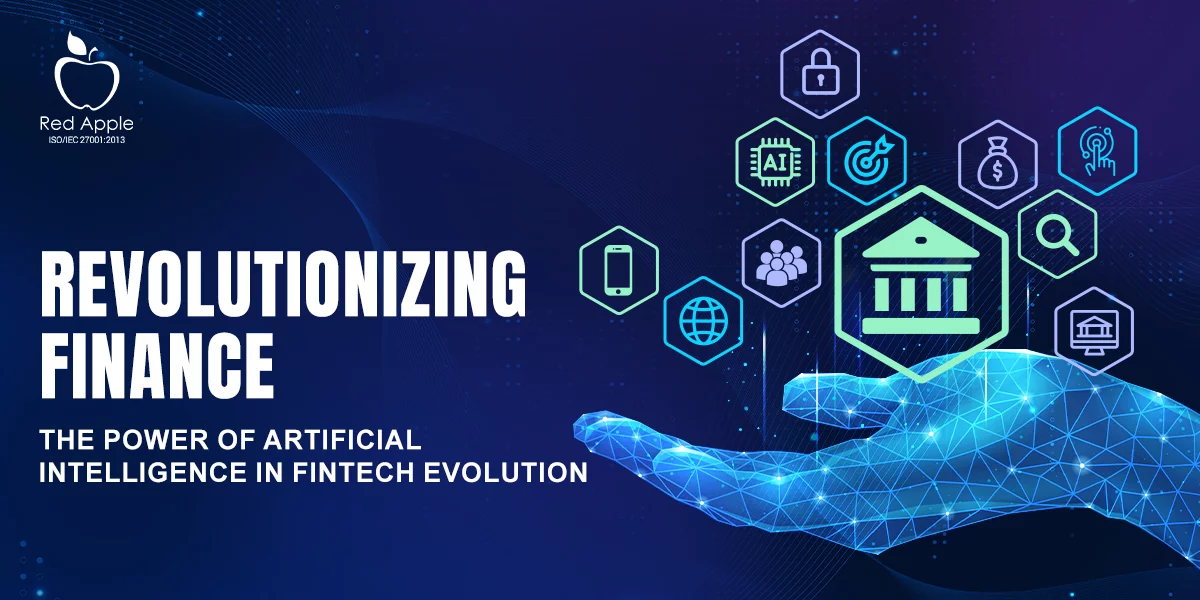In the realm of personal finance, where individuals strive for financial security and prosperity, Artificial Intelligence (AI) is paving the way for transformative innovations. Fintech, the intersection of finance and technology, is harnessing AI to revolutionize how people manage their money, make investments, and plan for the future. From personalized recommendations to automated financial management, AI-powered solutions are reshaping the landscape of personal finance with profitable opportunities abound.
Contents
- 1 Profitable Applications of AI in Fintech
- 1.1 Robo-Advisors and Investment Management:
- 1.2 Credit Scoring and Loan Approvals:
- 1.3 Expense Tracking and Budgeting:
- 1.4 Fraud Detection and Security:
- 1.5 Personalized Financial Advice and Education:
- 1.6 Building Profitable AI Solutions in Fintech
- 1.7 AI-Driven Investment Platforms:
- 1.8 AI-Based Credit Scoring Services:
- 1.9 AI-Powered Personal Finance Apps:
- 1.10 AI-Enhanced Fraud Prevention Solutions:
- 1.11 Challenges and Considerations
- 1.12 Conclusion
The Role of AI in Personal Finance
AI’s integration into personal finance brings unprecedented capabilities to individuals seeking to optimize their financial decisions and outcomes. Machine learning algorithms analyze vast amounts of financial data, predict market trends, and offer tailored recommendations based on individual preferences and goals. This personalized approach not only enhances financial literacy but also empowers users to make informed choices with confidence.
Profitable Applications of AI in Fintech
Robo-Advisors and Investment Management:
AI-powered robo-advisors assess an individual’s risk tolerance, financial goals, and market conditions to recommend personalized investment portfolios. These platforms automate asset allocation, rebalancing, and tax optimization, offering cost-effective investment solutions compared to traditional financial advisors.
Credit Scoring and Loan Approvals:
AI algorithms analyze credit histories, spending patterns, and alternative data sources to assess creditworthiness accurately. This facilitates faster loan approvals, fairer interest rates, and improved access to credit for individuals who may not fit traditional credit scoring models.
Expense Tracking and Budgeting:
AI-driven budgeting tools categorize expenses, analyze spending trends, and provide real-time insights into financial habits. These tools help users create realistic budgets, identify saving opportunities, and achieve financial goals through personalized recommendations.
Fraud Detection and Security:
AI enhances fraud detection systems by monitoring transactions, detecting anomalies, and flagging suspicious activities in real-time. This proactive approach protects users from identity theft, unauthorized transactions, and other fraudulent activities, ensuring financial security and peace of mind.
Personalized Financial Advice and Education:
AI-powered virtual assistants provide personalized financial advice, answering queries about savings strategies, retirement planning, and investment opportunities. These assistants leverage natural language processing to deliver tailored recommendations and educational content,improving financial literacy among users.
Building Profitable AI Solutions in Fintech
AI-Driven Investment Platforms:
Develop AI-powered investment platforms that offer robo-advisory services, portfolio management, and automated trading capabilities. Subscription-based models or fees based on assets under management can generate recurring revenue streams.
AI-Based Credit Scoring Services:
Offer AI-driven credit scoring services to financial institutions, fintech startups, and consumers seeking alternative credit assessment methods. Licensing models or pay-per-use arrangements can monetize access to AI-powered credit analysis tools.
AI-Powered Personal Finance Apps:
Create mobile apps that integrate AI for expense tracking, budget management, and financial goal setting. In-app purchases, premium features, and subscription plans can monetize access to advanced financial planning tools and insights.
AI-Enhanced Fraud Prevention Solutions:
Develop AI-driven fraud prevention solutions for banks, payment processors, and e-commerce platforms. These solutions can be monetized through subscription services or transaction-based fees, offering scalable protection against financial fraud.
Challenges and Considerations
Despite its potential, integrating AI in personal finance requires addressing challenges such as data privacy, regulatory compliance (e.g., GDPR, CCPA), and maintaining algorithmic transparency. Ensuring AI models are fair, unbiased, and accountable in their recommendations is crucial to building trust among users and stakeholders.
Conclusion
AI-powered innovations in fintech are reshaping personal finance, offering individuals unprecedented access to sophisticated financial tools and personalized advice. By leveraging AI for investment management, credit scoring, budgeting, and fraud detection, fintech companies can cater to evolving consumer demands for convenience, transparency, and financial empowerment. Embracing AI isn’t just about efficiency; it’s about unlocking profitable opportunities to improve financial well-being and foster a more inclusive financial ecosystem. As AI continues to evolve, its role in empowering individuals to achieve their financial goals will only grow, paving the way for a more personalized and profitable future in fintech.


